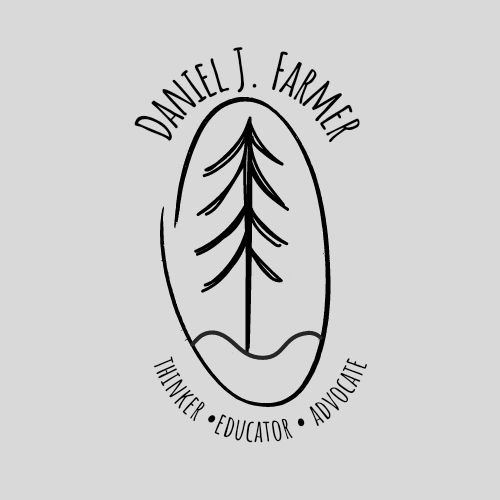MAED Showcase
An educational Gallery

Pursuing my master’s degree yielded a series of works that demonstrate my educational philosophy. By and large, this degree has steered me toward a vision of a place-based school that creates space for a small group of dedicated students to engage in their curiosities. The guiding principle has been to maintain a critical lens. Thus, the below gallery is organized by fundamental questions that guide my work.
What is curriculum?
What is an inclusive classroom?
Is it working?
Critical inquiry and questioning have been pertinent in my learning and will continue to guide my career.

What is Curriculum?
In pursuit of creating an educational institution, I asked the question: What is curriculum?
From John Dewey to Sir Ken Robinson, I explored various approaches to curriculum that center curiosity. The following list represent the cornerstones of my curricular philosophy.
Education is a lifelong endeavor
Community is necessary for learning
Knowledge should be couched in context
In my first assignment for Concepts of Educational Inquiry, I explore early ideas of education and demonstrate the formation of my education ideals.
Read my final paper from Curriculum In Its Social Context at the link below. It provides insight into my deeper understanding as to the nature of curriculum and my ability to meaningfully engage with all aspects of the learning experience.
What is an inclusive classroom?
Inclusion is a critical element of my optimal classroom. It is a space where students can come as they are and find their needs met. The utopian quality of this value is not lost on me, but the striving is important. In the above video, I explored language diversity in the classroom with a classmate as we completed Case Studies In Educational Leadership. I employ my ability to consider the intricacies of diverse experiences.
In Issues and Strategies in Multicultural Education, I practiced applying a critical multicultural lens to a class. I invite you to read about that experience my clicking the button below.
Is it working?

The most fundamental skill I practiced in my degree is how to think critically about my educational endeavors. It is crucial to be able to assess my approaches to problem solving as an educator. Each of the following assignments are examples of my ability to assess the tools I employ.
This is especially pertinent once I run an institution. In Developing Positive Attitudes toward Learning, I analyzed a digital language learning tool. This paper demonstrates my ability to think critically about the tools I employ in the classroom.
In Inquiry into Classroom Teaching and Learning, I studied the efficacy of my Spanish language interventions with a group of students. Both of these were prime examples of how to analyze and assess my educational tools.

The slide deck below represents the accompanying presentation to the paper I wrote in Inquiry Into Classroom Teaching and Learning. These slides provide insight into the research process I implored and the way I understand teacher research. I had to identify the problem, conduct investigation into research that has already been done, design an experiment, enumerate the methodology, and evaluate the findings.

